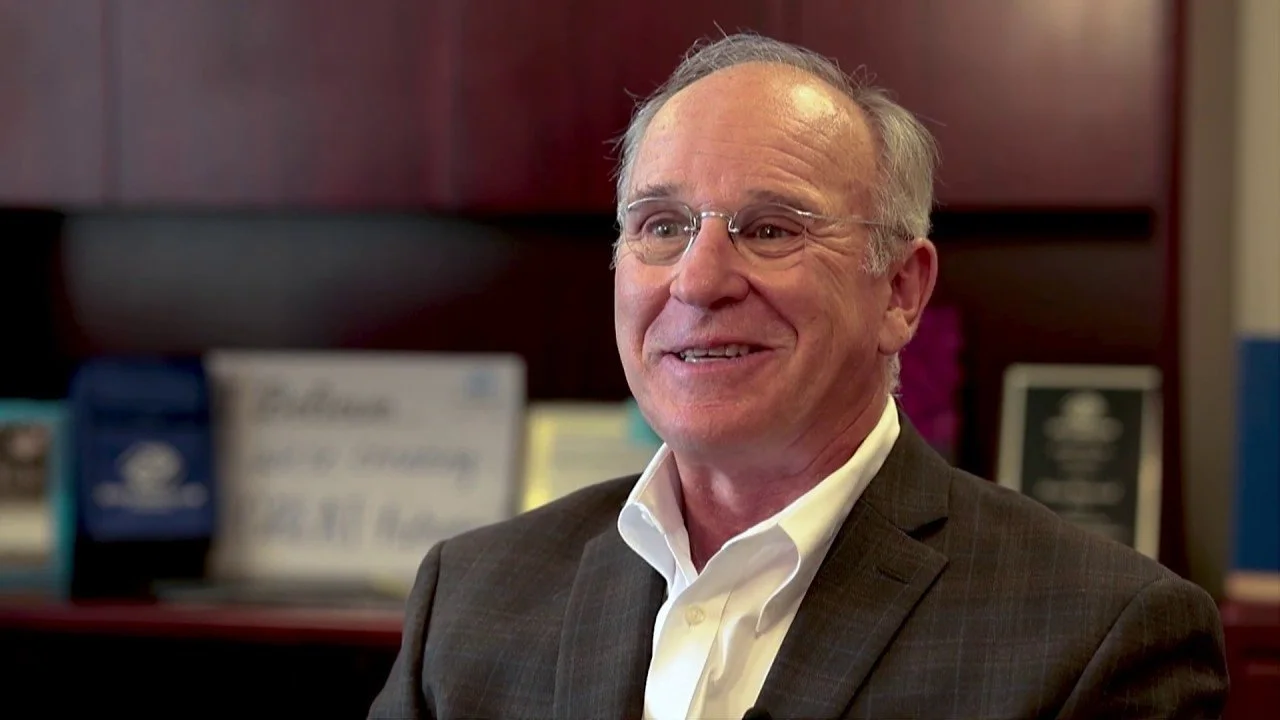After scrapping its Certificate of Need Board, state has no ‘window’ into what drives ever-rising costs
By Paul Cuno-Booth-Granite State News Collaborative
Over the past decade, larger health systems — many based out of state — have snapped up community hospitals in New Hampshire, touting flashy new investments, even as some residents voice concerns about other services being cut.
Regional hospital groups have formed, and split up. Urgent care clinics, outpatient surgical centers and other independent facilities have proliferated.
When the Certificate of Need Board was scrapped in 2016, New Hampshire also lost a key source of transparency into the state’s health care market, says Lucy Hodder, a professor at the University of New Hampshire Franklin Pierce School of Law who focuses on health law and policy. (Franklin Pierce School of Law photo)
What does all that mean for patients, employers and their ever-growing health care costs? It’s hard to say — because no one is really keeping tabs in a systematic way, some New Hampshire health care experts said.
“We have seen a proliferation of services that no one is even tracking,” said Lucy Hodder, a professor at the University of New Hampshire Franklin Pierce School of Law who focuses on health law and policy. “That results in duplication, high cost, patient frustration. We see investment in services that aren’t needed as opposed to those that are. We lack any real look into the future as to how we want to use our health care resources.”
Hodder and others say that lack of transparency hinders efforts to figure out how to preserve access to essential health services while controlling costs, which remain a major concern. In a 2024 survey from New Futures, a health policy organization, more than two-thirds of Granite Staters said they’d recently put off going to the doctor, skimped on medication or otherwise delayed or skipped medical care because of cost.
New Hampshire used to track the growth of health care services more closely, through a regulatory body known as the Certificate of Need Board, which reviewed proposed capital investments by hospitals and other providers.
Most agreed that the board process was flawed, and critics said it failed in its primary mission of containing costs, because it quashed competition from new market entrants that could offer care at lower prices. The Legislature dissolved the board in 2016.
Hodder agreed the Certificate of Need Board had issues — but, by scrapping it, New Hampshire also lost a key source of transparency into the state’s health care market
As part of its work, the board tracked metrics on everything from MRI machines to open heart surgeries, shedding light on where those services were located, whether they were enough to meet the community’s needs, how affordable they were, what wait times looked like, and whether services were being duplicated in a way that could drive up costs.
Today, no one is tracking that data in a coordinated way, she said. She worries the result has been a “clandestine arms race,” as large health systems try to stay afloat by investing in the most lucrative services, regardless of need.
“Our entire economy is reliant on accessible and affordable health care, and this [board] provided a window into whether we have it and what it looks like in New Hampshire,” Hodder said. “And we don’t do that anymore.”
‘It prevented competition’
The idea of requiring health care providers to obtain a “certificate of need” to justify major construction projects or service expansions stems in part from the work of a pioneering Dartmouth College researcher, Dr. Jack Wennberg. Wennberg found the supply of health care resources in an area — such as having more hospital beds — could lead to higher utilization, and therefore higher costs, without necessarily producing better outcomes.
By the early 1980s, spurred by since-repealed federal requirements, nearly every state had a certificate of need process. But it’s questionable whether they had the intended effect, and more than a dozen states have since repealed their certificate of need laws.
A systematic review published in 2020 in the journal BMC Health Services Research found the evidence is mixed on whether certificate of need laws reduce health care spending, but the costs — including the potential to restrain competition — generally outweigh the benefits.
In 2010, a legislative study committee concluded that New Hampshire’s certificate of need process was flawed in various ways. The dominance of large health care providers on the board created conflicts of interest, and loopholes sometimes allowed them to evade review, and there was no consistent consumer advocate voice. The report also found the board’s support staff was underfunded, and it lacked a larger plan for improving affordability and access.
The committee recommended replacing the board with a more robust, independent body. Lawmakers instead voted in 2012 to sunset the board four years later.
Nick Vailas, a health care entrepreneur and former state health and human services commissioner, says the Certificate of Need Board — which he at one point served on — ‘prevented competition.’ (Screenshot)
Nick Vailas, founder and CEO of the Bedford Ambulatory Surgical Center and a former state health and human services commissioner, cheered that decision. He had been appointed to the board, he said, for an unusual reason — the governor at the time wanted his help getting rid of it.
Vailas described the board as beholden to hospital interests that had an incentive to keep out lower-priced competitors. He experienced that firsthand, when HCA Healthcare — the country’s largest for-profit health system and parent company of Portsmouth Regional Hospital — fought his plans to open a freestanding surgical center in the area. The case eventually made it to the state Supreme Court, where Vailas prevailed.
“It prevented competition, which we all know is a natural check and balance for keeping prices in check,” he said.
He credits the board’s repeal with ushering in a wave of imaging centers, labs and other independent facilities that offer patients lower-cost options.
“You want the high-quality, highest-valued providers to survive,” he said. “So we need more free market in health care.”
The problem, Vailas said, is there’s too little transparency about prices, so consumers have a hard time making informed decisions about which providers offer the best care for the lowest price. It’s something he’s trying to address through a private company he started, Delphi.
“Could we do better health planning and reviewing? Absolutely. It’s all based upon data collection,” he said. “Then what do you do with data? I don’t believe the government is sophisticated enough at this point to do that, and nor do I believe it’s absolutely necessary.”
Bearing the brunt of rising costs
Without a body like the Certificate of Need Board, no one’s taking a hard look at how the growth of health care services is affecting costs in New Hampshire, says N.H. Sen. Cindy Rosenwald, D-Nashua. (Courtesy photo)
State Sen. Cindy Rosenwald, a Nashua Democrat who sat on the 2010 legislative study committee, said she thought the board should have been overhauled rather than scrapped. Without it, she said, no one’s taking a hard look at how the growth of health care services is affecting costs.
“As a result, any hospital that wants to start doing X, if they can make their own business case for it, they’re free to do it,” Rosenwald said.
‘’We can have it all — but then we can’t keep saying, well, why is health care so expensive?’ says Maria Proulx, president of Anthem Blue Cross Blue Shield in New Hampshire, who served on the Certificate of Need Board briefly before it was disbanded in 2016. (Courtesy photo)
To Maria Proulx, president of Anthem Blue Cross Blue Shield in New Hampshire, the question is not whether the Certificate of Need Board was good or bad. It’s whether the state is addressing the questions it was set up to address — such as what services are actually needed and what’s unnecessarily inflating costs.
“We can have it all — but then we can’t keep saying, ‘Well, why is health care so expensive?’” said Proulx, who served on the board briefly before it was disbanded.
For example, she said, it might be nice to have a lab every 5 miles, or a large array of services at every local hospital. But “in health care, convenience can be very expensive.”
The Certificate of Need Board may or may not have been the right way to wrestle with those tough questions of need versus convenience, she said — often, the market can sort those things out. What’s important is that those discussions happen. Otherwise, employers and patients will continue to bear the brunt of rising costs.
“Sometimes I feel like I can only get the attention of people when there’s a crisis, or when a hospital merger is proposed, then it’s like everybody cares,” she said. “But then it happens, and we all go on, and we sort of lose sight of it again until another big event happens.”
Hodder said the state’s launch of a new Health Care Consumer Protection Advisory Commission is a step in the right direction. That commission was set up by the New Hampshire attorney general’s office, with a mission to better understand the state’s health care market and how to make it work better for consumers. The commission recently announced it is funding a new center at the University of New Hampshire to study those issues.
“The attorney general decided, as it was reviewing bigger and bigger mergers and hospital consolidation, that it needed to fund an entity to look at the impact,” she said.
At the same time, she expressed concern about the recent elimination of the Prescription Drug Affordability Board in the recently approved state budget. It was formed in 2020 to look at the drivers of high drug costs and recommend ways the state can save money.
Rosenwald sees that as a “missed opportunity” to control costs for taxpayers and, ultimately, patients.
“That is the only entity in the state that’s actually taking a comprehensive look at what the taxpayer dollars are paying for prescription drugs,” she said of the affordability board. “And that’s a significant driver in cost.”
Hodder said she wants state officials to declare that affordable and accessible health care is a priority, and set goals.
“There are a lot of hidden incentives in health care,” she said. “The patients right now are left holding the bag.”
This story is part of Critical Condition: What hospital consolidation means for care, access, and your community, a special series co-produced by partners in the Granite State News Collaborative. These stories are being shared by media outlets across New Hampshire. We want to hear from you! Take our short survey athttps://tinyurl.com/3au39uctabout your healthcare experiences. For more information, visitcollaborativenh.org.




